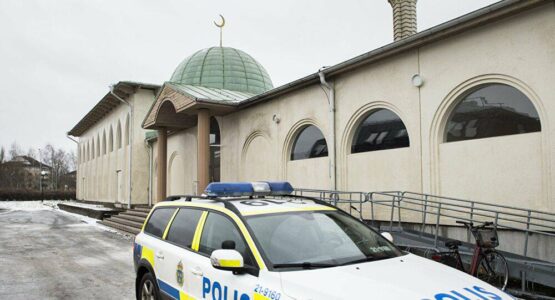
Radical Islamists harvested $140 million through deals with the Swedish authorities
According to the news agency Siren, some of the companies receiving Swedish taxpayers’ money are controlled by individuals who have fought for Daesh in the Middle East and al-Shabaab in Africa. Terrorism researcher Magnus Ranstorp stressed that great gains are to be made in financial crime, with very little risks.
Companies run by Islamists in Sweden have received over one billion kronor through deals with municipalities and the Swedish state, the newspaper Aftonbladet reported, citing a review that mapped Islamists’ economic connections to the Swedish state.
According to the review by the news agency Siren, there are 550 individuals in Sweden affiliated with extreme Islamism, including people who have been part of Daesh and al-Shabaab as well as fundamentalist Salafists who want to introduce sharia law.
Furthermore, according to Siren, about 50 companies and organisations that feature Islamist capital or management, have done business or entered deals with the Swedish state or municipalities. The list includes everything from moving companies to independent schools run by Islamists. From 2015 to 2019, their transactions amounted to 1.2 billion SEK ($140 million).
Above all, it is about agreements between independent schools and municipalities. The Safir School in Gothenburg and the Norrland-based parent cooperative Bilaal have raised the most money. More than SEK 150 million ($17.3 million) has been secured through municipal agreements with the education company Edinit, a subsidiary of the al-Azhar Foundation that operates in about 30 municipalities predominanty in Stockholm and Västmanland counties and is driven by people from radical Islamist milieus, Aftonbladet reported.
The list also features a Stockholm-based fruit supplier that delivered fruit worth millions of kronor to the Public Prosecutor’s Office and about 20 other authorities. In Skåne County, a moving company run by Islamists has been hired by several municipalities.
Magnus Ranstorp, one of the country’s leading terrorism experts and senior researcher at the Swedish National Defence College, called Sweden’s handling of the problem a “confetti model” and slammed the authorities for failing to follow up on where the money actually goes, citing previous warnings by the national Security Police (Säpo).
“Different people are good at different parts of the business, such as starting up companies, exchanging services, and issuing certificates to obtain maximum benefits from the welfare system. For those who engage in financial crime, there are great gains to be made while the risks are low”, Ranstorp explained.
Ranstorp stressed that radical Islamists chose to “put a lot of gunpowder” on school activities in particular.
“Of course, there is a purely financial purpose, to make money. Then it is about the influence aspect and about isolating young people from the non-religious society”, Ranstorp stressed.
Sweden emerged as one of Europe’s leaders in terms of jihadists per capita, having provided about 300 “Daesh travellers”, as they are sometimes referred to in official parlance. Since then, Sweden has been described as a “haven” for Islamists and terrorists, among others, by its own immigration authorities.
In recent years, Säpo’s estimate of the number of violent Islamists has risen tenfold from about 200 in 2010 to about 2,000 toward the end of the decade.
Source: Sputnik News





